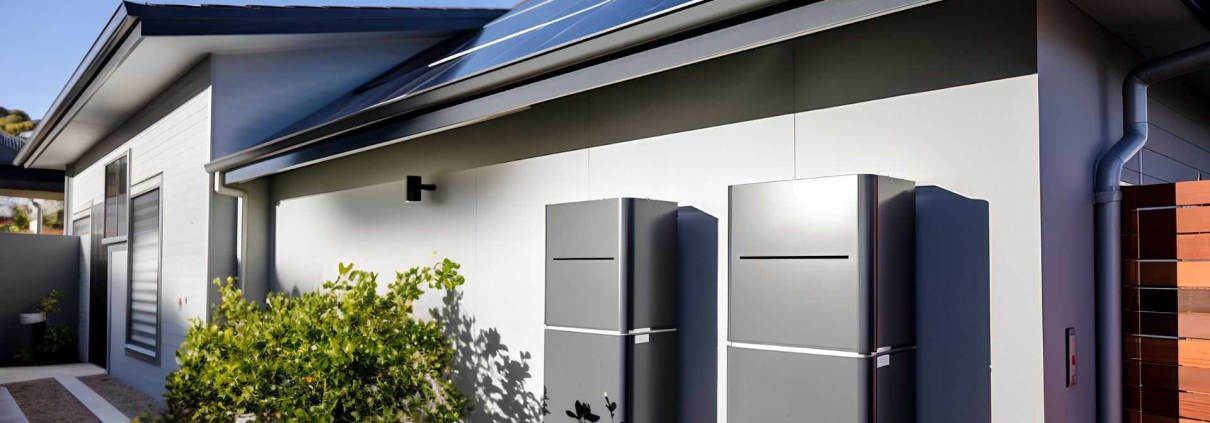Are Home Solar Battery Storage Systems a Worthwhile Investment in 2025?
Introduction: The Big Question
For many homeowners in 2025, solar battery storage systems are increasingly seen as a practical way to cut electricity costs, improve energy independence, and prepare for grid disruptions. But there’s one crucial question that continues to come up: are home solar battery storage systems a worthwhile investment?
The short answer is: in many cases, yes—but whether they make sense for your household depends on factors such as your electricity rates, local incentives, and the type of battery you choose. This article breaks down the economics, technical considerations, and long-term benefits so you can decide if a solar battery system is right for you.
What Do Home Solar Battery Storage Systems Do?
A home solar battery system captures and stores excess energy produced by your rooftop solar panels during the day. Instead of sending surplus power back to the grid, that energy can be saved for later use—typically in the evening when household demand is highest or during a power outage.
Key functions include:
- Maximizing solar self-consumption: Using more of the energy your system produces.
- Backup power: Keeping critical appliances running when the grid goes down.
- Load shifting: Charging the battery when electricity is cheap and using it when prices rise.
These benefits are compelling, but whether the investment pays off depends on both the cost and the long-term value.
Key Factors That Influence Investment Value
When assessing whether a solar battery system is worthwhile, several variables come into play:
- Initial Cost – The purchase price of batteries, inverters, and installation.
- Battery Lifespan and Maintenance – How long the system lasts and how much upkeep is required.
- Electricity Prices – Higher utility rates and steep peak-hour charges improve ROI.
- Government Incentives – Tax credits, rebates, and subsidies can significantly reduce upfront cost.
- Household Energy Usage – Homes with higher evening consumption benefit more from storage.
Cost Comparison: Lead-Acid vs. Lithium Batteries
When it comes to cost, the choice of battery chemistry matters. Homeowners usually face two main options: lead-acid and lithium-ion batteries.
- Lead-Acid Batteries
Lead-acid batteries are the cheaper entry point, often costing 30–50% less upfront than lithium alternatives. However, they generally last only 3–5 years, require regular maintenance (such as topping up water and equalization charging), and offer a lower usable capacity. Over a 10-year period, most homeowners would need to replace them two to three times, which increases the total cost of ownership. - Lithium Batteries
Lithium-ion batteries come with a higher initial price tag, but they typically last 10–15 years with minimal maintenance. They also provide higher efficiency (90% or more round-trip), deeper depth of discharge (80–90%), and more consistent performance. In many cases, a single lithium system can cover the entire life of a solar array without replacement. - The ROI Perspective
If we calculate the cost per usable kilowatt-hour over the system’s lifespan, lithium batteries often come out ahead despite the higher upfront investment. For long-term homeowners, the superior durability and efficiency make lithium the more cost-effective option.
👉 In summary: lead-acid is cheaper upfront but costlier in the long run; lithium requires more investment initially but provides better lifetime value.
Calculating the ROI of a Home Storage System
To see how this plays out, let’s look at a simplified example.
- A homeowner installs a 10 kWh lithium battery system with solar panels.
- Local electricity prices are $0.25 per kWh, and the home consumes around 12,000 kWh per year.
- By shifting consumption and reducing reliance on grid power, the battery saves roughly $1,000 annually.
If the battery system costs $9,000 after incentives, the payback period would be about 9 years. Considering the battery may last 12–15 years, the system will likely generate net savings over its lifetime.
In contrast, a similar lead-acid system might cost $6,000 upfront, but because it requires replacement every 4–5 years and offers lower efficiency, the total 10-year cost could exceed $12,000—making it less attractive over time.
Who Benefits the Most from Solar Battery Storage?
Solar batteries are not a one-size-fits-all investment. The value depends heavily on your situation.
Best-fit homeowners include:
- Residents of states with high electricity rates (California, Hawaii, New York).
- Families in areas with frequent power outages or unreliable grids.
- Households with high evening electricity consumption (e.g., EV charging, HVAC use).
- Long-term homeowners who plan to stay in their property for 10+ years.
Less ideal candidates include:
- Households in regions with low utility rates and no peak pricing.
- Renters or homeowners planning to move in a few years.
- Areas with limited government incentives to offset upfront costs.
Beyond Cost: Other Benefits to Consider
While ROI is important, there are additional benefits that don’t always show up in dollar terms:
- Energy independence – Less reliance on utilities and protection from rising rates.
- Resilience – Backup power during storms, wildfires, or grid outages.
- Environmental impact – Reducing fossil fuel dependence by consuming more renewable energy.
- Future-proofing – Preparing for electric vehicle charging or participation in virtual power plants (VPPs).
These “soft benefits” often make storage more appealing, even when pure payback calculations look borderline.
Future Trends in Home Energy Storage
Looking ahead, several trends are expected to improve the investment value of solar batteries:
- Declining battery costs: Lithium battery prices continue to fall as manufacturing scales.
- New technologies: Solid-state and hybrid chemistries promise higher density and longer lifespans.
- Grid integration: Utilities are rolling out programs that pay homeowners for feeding stored power back into the grid.
- Policy support: Federal and state-level incentives remain strong and could expand further.
Conclusion: Is It a Worthwhile Investment?
So, are home solar battery storage systems a worthwhile investment?
- Yes, in many cases. For homeowners in high-cost electricity markets, with generous incentives and a long-term outlook, solar batteries—especially lithium-based systems—deliver strong lifetime value.
- It depends, in others. If you live in a region with low utility rates and limited subsidies, the payback period may be too long to justify the investment purely on cost savings.
Ultimately, the decision should factor in not just the financials but also your household’s resilience needs, environmental goals, and energy independence priorities.
Further Reading: Balcony Storage for Urban Homes
If you’re intrigued by the potential of home energy storage but live in an apartment or space-limited environment, you may want to explore a growing alternative: balcony energy storage systems.
These compact, modular solutions are designed for urban households and can be installed on balconies or terraces to support small-scale solar setups. For a detailed guide on how they work, their safety considerations, and whether they might be right for you, check out this article:
👉 Balcony Energy Storage Systems: A Comprehensive Guide for Urban Home Energy Independence


